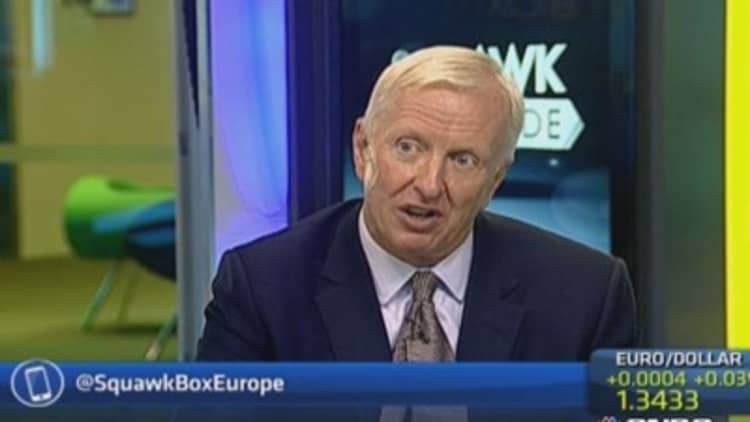British shop prices fell at their fastest rate since December 2006 driven by aggressive discounting and "fierce" competition among retailers, the British Retail Consortium (BRC) said on Wednesday.
The retail body said prices in July dropped 1.9 percent from a year ago, marking the fifteenth consecutive month of falling prices and the quickest deflation of prices in seven and a half years. Shop prices fell 1.8 percent in June.
Read MoreUK productivity 'abysmal'—but economy growing well
Food inflation was just 0.3 percent, the lowest rise on record, compared with the 0.6 percent seen last month. Non-food items, which include furniture, books and clothing, saw prices plunge 3.3 percent in July.
Price wars
Helen Dickinson, director general of the BRC said the fall in prices will benefit consumers.

"This is great news for households who are benefitting from fierce competition within the industry at a time when disposable incomes remain under pressure," Dickinson said in a press release.
U.K. supermarket chains like Morrisons and Tesco are under pressure from discount stores like Aldi and Lidl forcing an aggressive pricing war. This has squeezed the margins of many supermarkets and hit profits.
Read MoreS&P upgrades outlook for UK economy
"Deep and widespread discounting across the grocery sector is intensifying with prices falling almost 1 percent month-on-month – another record jump. After accounting for the use of multi-buys and vouchers, food prices are falling," Dickinson added.
The rate of UK inflation, as measured by the Consumer Price Index (CPI), rose sharply in June to 1.9 percent, according to the Office for National Statistics, just below the Bank of England's 2 percent target. The CPI measures a wider range of products than the BRC's index.
Read MoreECB 'won't move a muscle' despite deflation fears
Euro zone deflation
Meanwhile, deflation fears continue to trouble the euro zone after official figures showed inflation in the single currency bloc rose by 0.4 percent in July compared to the same period last year, its lowest level since October 2009.
The European Central Bank (ECB) introduced a raft of new measures in June to tackle falling prices and spur growth in the region's struggling economy. All eyes will be on ECB policymakers when they meet on Thursday, though analysts are expecting the central bank to hold fire on any new measures. The Bank of England is also set to announce its monthly policy decision on Thursday.


